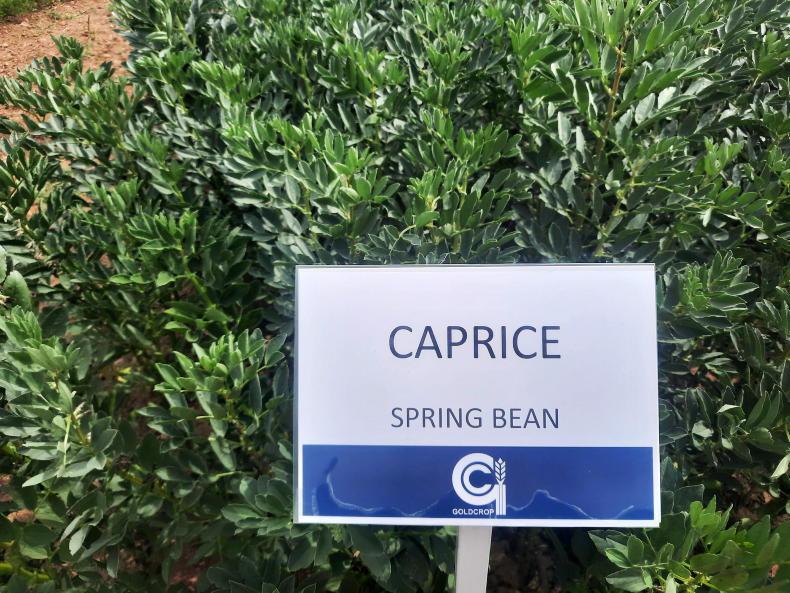One new variety has been added to the spring beans provisionally recommended list this year. That variety is Protina which can have a protein content of up to 28%.
It’s great to see a focus on protein content from the seed trade and breeders as this makes protein crops like beans more attractive to the feed industry. It also helps to reach Ireland and EU goals to reduce imported protein levels and reduce nitrogen fertiliser use as protein crops can fix their own nitrogen.
The Department of Agriculture, Food and the Marine released the lists last week.
Lynx is the front runner on the list for relative yield on a score of 102. Protina follows on 100 and Caprice and Victus have scores of 99 each.
Looking at protein content and Protina and Caprice have relative protein scores of 102 each. Lynx and Victus both hit 100.
Victus is a short variety at 126, while the remaining varieties are at 132cm (Caprice and Lynx) and 133cm (Protina).
Lynx tops the list for resistance to lodging with a score of 9, although Caprice and Protina follow with scores of eight. Lynx also hits the top score for brackling resistance with a score of eight.
Earliness of maturity is an important characteristic when it comes to beans as they often have a late harvest date. Many growers struggled to harvest crops in 2023. Caprice and Victus have the highest scores for earliness of maturity with a score of seven. The two remaining varieties have a score of six.
Victus has the highest score for resistance to chocolate spot at seven, while the remaining varieties score a six.
Protina has a score of eight for resistance to downy mildew, compared to seven for the rest of the varieties.
Protina and Caprice score a six for resistance to rust and Lynx and Victus score a five.
Lynx is expected to take up the majority of the seed market this season.
Caprice could count for about one third of seed available, while Victus and Protina are only available in small quantities.






 This is a subscriber-only article
This is a subscriber-only article










SHARING OPTIONS: